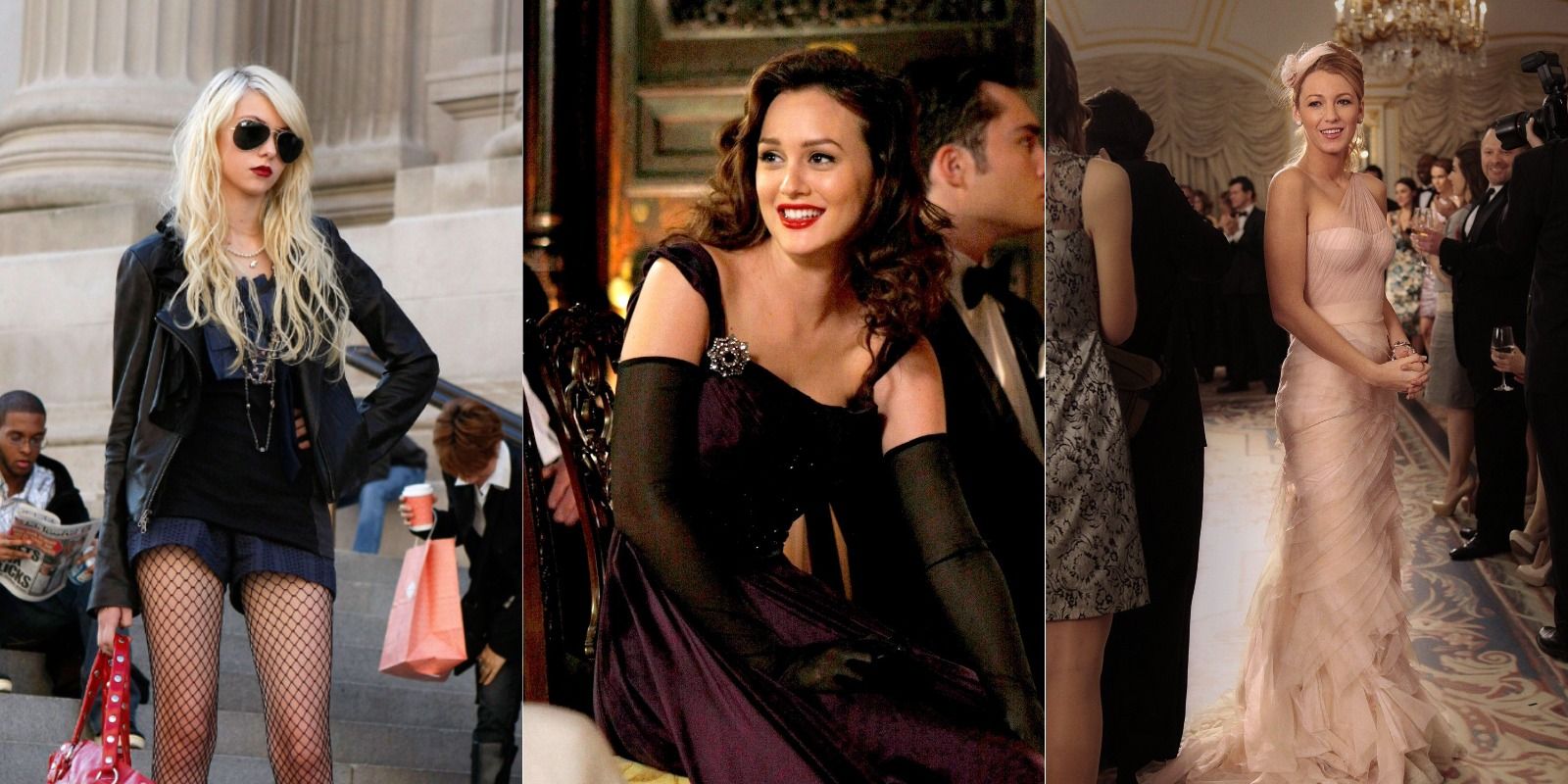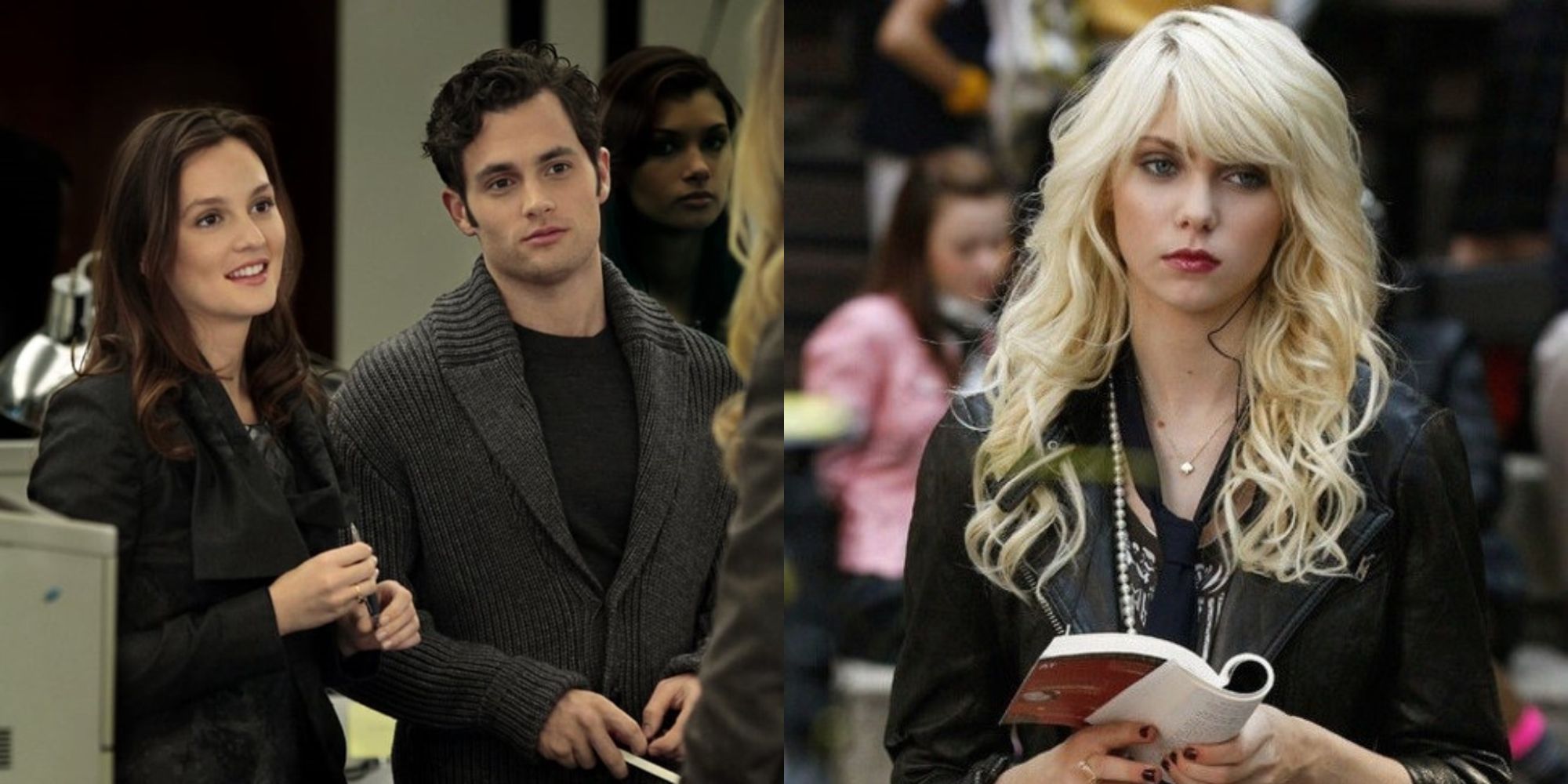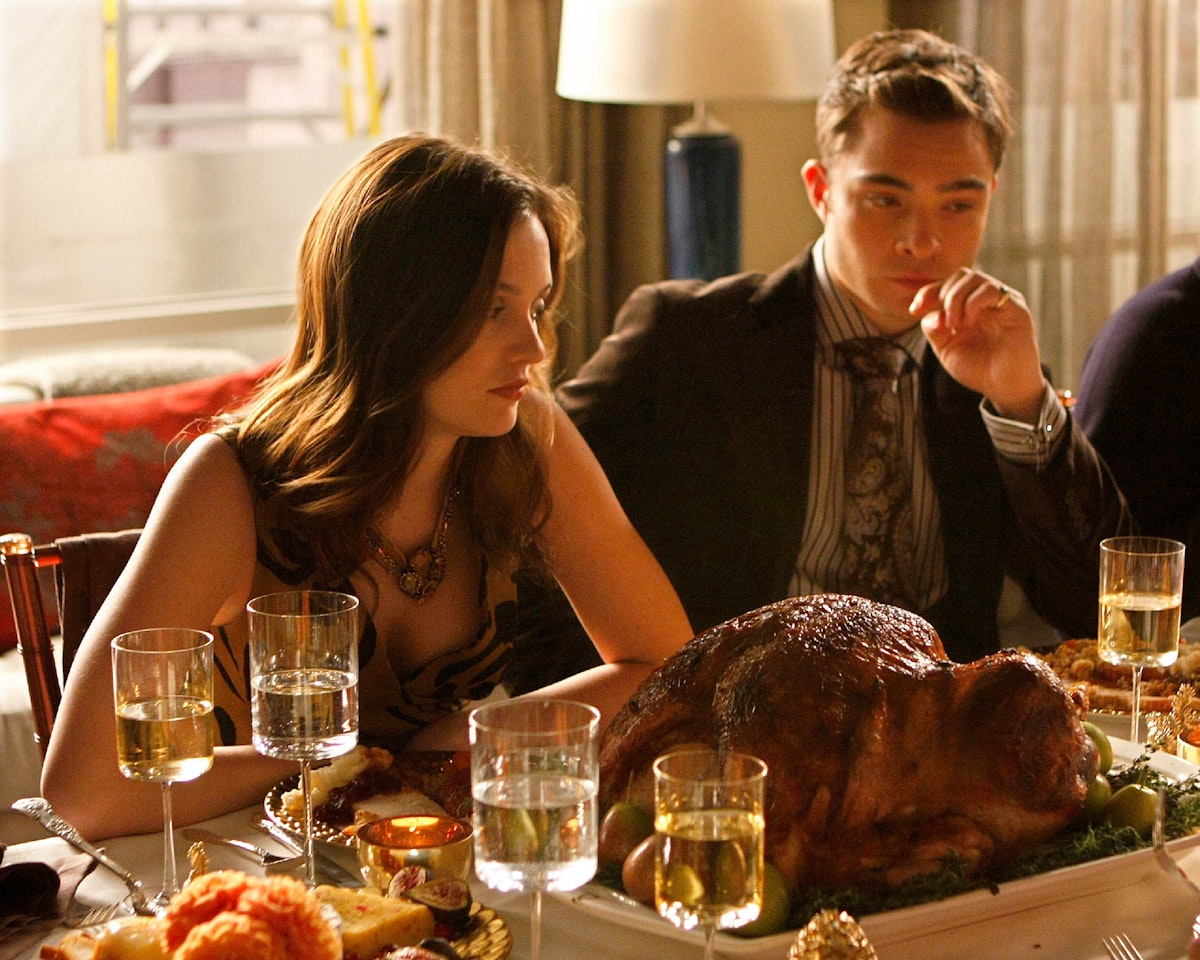Was Gossip Girl Ahead Of Its Time? Unpacking The Show's Surprising Foresight
Do you ever think about how much the world has changed since Gossip Girl first graced our screens? It’s a question that, quite honestly, pops up a lot when we consider the constant flow of information and the way personal lives are, you know, just out there for everyone to see. The show, with its anonymous blogger spilling secrets about Manhattan's elite, felt like a fun, dramatic fantasy back in the day. But looking back, it's almost like a crystal ball, isn't it? It seems to have predicted so many aspects of our current digital existence, especially how we consume news and, well, all those juicy details about people we find interesting.
Consider for a moment how much we now follow the "actualités people, news et potins sur les stars et célébrités," as we often talk about. The show tapped into that deep human desire to know what’s happening behind closed doors, to understand the "buzz du net" and the latest on "Télé réalité" stars like Greg Yega or Maeva Ghennam. It was, in a way, a fictionalized version of the very real public appetite for personal stories, the kind that can turn private moments into public spectacles.
So, the big question remains: was Gossip Girl truly ahead of its time? Did it somehow see the future of social media, influencer culture, and the sometimes brutal world of online scrutiny long before we were all glued to our phones, scrolling through endless feeds? Let's take a closer look at how this iconic series might have, perhaps, shown us a glimpse of what was to come, and how its themes still resonate with us today, pretty much every single day.
- Actress On Drugs
- Cast Of The Good Shepherd
- Does Red Bull Have Sperm
- Trick Daddy Dead
- Short African American Styles
Table of Contents
- The Digital Oracle: Predicting Social Media's Grip
- Fashion as a Forecaster: Influencing Style Beyond the Screen
- Reality TV and the Blurring Lines of Privacy
- The Dark Side of Digital Life: Scrutiny and Reputation
- More Than Just Gossip: Exploring Deeper Societal Themes
- Frequently Asked Questions About Gossip Girl's Foresight
The Digital Oracle: Predicting Social Media's Grip
When Gossip Girl first appeared, platforms like MySpace were big, and Facebook was, you know, still mostly for college students. The idea of an anonymous blogger having such a powerful hold over an entire social scene seemed, well, a bit far-fetched to some. Yet, looking back, it’s almost eerily similar to the rise of influencer culture and the pervasive nature of online gossip today. The show depicted a world where every party, every secret rendezvous, every little mistake could be instantly broadcast to a wide audience, often with little context. That's a bit like our lives now, isn't it?
The anonymous blogger, Gossip Girl herself, acted as a kind of proto-influencer, shaping perceptions and reputations with a few clicks. She could make or break friendships, start rumors, and even dictate social standing, all from behind a screen. This really does mirror the way online personalities, even anonymous ones, can sway public opinion or create "buzz du net" around individuals. It shows how a single person, with just a keyboard, could hold so much sway, which is, honestly, a pretty powerful idea.
The constant surveillance and public shaming, a core part of the show’s plot, felt dramatic then. Now, it's a daily reality for many, especially those in the public eye. Whether it's a celebrity's private moment getting "grillée" or a public figure's past comments resurfacing, the idea that nothing truly stays secret online was a central theme. This echoes the real-life situations we see, where a simple post or photo can spiral into a huge public discussion, sometimes with harsh consequences. It's like the show, in a way, was giving us a sneak peek into the future of online accountability, for better or worse.
- Angel Bites Fangs
- Types Of Hairstyles Female
- Who Is Bob Joyce Wife
- Red Claws Basketball
- States With Highest Humidity
Fashion as a Forecaster: Influencing Style Beyond the Screen
Beyond the drama and secrets, Gossip Girl was, arguably, a massive force in fashion. The characters' wardrobes were, in fact, a statement in themselves, often dictating trends for young people around the world. Serena's bohemian chic, Blair's preppy elegance – these weren't just costumes; they became aspirational looks. The show's influence on style was so significant that it blurred the lines between fictional characters and real-life trendsetters.
The series showcased how clothing could communicate status, personality, and even secrets, without a single word being spoken. The careful curation of each outfit, the brand placements, and the overall aesthetic created a visual language that was, you know, very compelling. This idea of personal style as a public statement, carefully crafted for an audience, really resonates with today's influencer culture, where every outfit choice is, quite literally, part of a personal brand. It’s a bit like how celebrities are always, you know, making sure their public image is just right.
It’s interesting to think about how the show’s fashion choices influenced real-world buying habits, pushing certain designers and looks into the mainstream. This kind of direct influence, where entertainment shapes consumer trends, was a clear precursor to the way fashion influencers and social media personalities now drive sales and create demand for products. The show, in a way, taught us that what you wear is, perhaps, just as important as what you say, which is, you know, something we see all the time in the public eye.
Reality TV and the Blurring Lines of Privacy
The very structure of Gossip Girl, with its unseen narrator commenting on and exposing the lives of its characters, felt very much like a scripted reality show. The voyeuristic nature of the narrative, the constant surveillance, and the public's insatiable appetite for the personal dramas of others were, quite frankly, central to its appeal. This is something we see play out in "Télé réalité" every single day, where the lines between what’s real and what’s produced are often, well, very blurry.
Think about the various reality TV personalities we follow, like Vincent Shogun discussing his new life or Maeva Ghennam's personal moments becoming public knowledge. The show mirrored this hunger for intimate details, showcasing how private lives become public entertainment. The drama, the feuds, the "guerre qui fait rage" between figures like Booba and La Fouine, where personal attacks become public spectacle – Gossip Girl explored these dynamics long before they were commonplace on our screens.
The idea of people being "tout le temps à po*l maintenant" in the public eye, where every aspect of their lives is exposed, was a theme that Gossip Girl explored through its characters' constant vulnerability to the blogger's posts. The series showed how easily reputations could be damaged and how difficult it was to maintain any semblance of privacy when a powerful, unseen force was watching. This is, in fact, a very real concern for many people in the public eye today, as we often see.
The Dark Side of Digital Life: Scrutiny and Reputation
Long before "cancel culture" became a household term, Gossip Girl demonstrated its raw power. Characters faced public shaming, social ostracization, and the destruction of their reputations based on anonymous tips and exposed secrets. The show illustrated how quickly a person's standing could crumble under the weight of digital judgment, and how, you know, a single piece of information could completely change everything.
The impact on mental well-being was also a subtle, yet present, theme. The constant anxiety of being exposed, the paranoia of who Gossip Girl might be, and the pressure to maintain a perfect image took a toll on the characters. This mirrors the real-world struggles many individuals, especially young people and public figures, face with online scrutiny and the relentless pressure to present an idealized version of themselves. It's a rather heavy topic, but it was there, if you looked closely.
The difficulty of escaping a digital past was also highlighted. Once a secret was out on Gossip Girl’s blog, it lingered, affecting relationships, careers, and personal lives long after the initial reveal. This foresight into the permanence of online information is, quite honestly, remarkable. It’s a bit like how a past comment, like "Tu as un problème d’amitié, tu es une personne aigrie," can resurface years later and cause new issues. The show really did, in a way, predict that nothing truly disappears once it hits the internet.
More Than Just Gossip: Exploring Deeper Societal Themes
While the juicy secrets and dramatic relationships were, you know, what kept many of us watching, Gossip Girl also touched on deeper societal themes that remain incredibly relevant. The show offered a glimpse into the lives of the privileged elite, exploring themes of class, wealth, and the often-unseen struggles that come with immense privilege. It showed that even with all the money in the world, personal problems and insecurities are, in fact, still very much present.
The series also subtly explored generational differences, particularly the clash between the established power of the older generation and the burgeoning influence of the digitally native youth. The young characters, armed with their phones and access to information, often found ways to navigate or even subvert the traditional power structures, which is, arguably, a very modern concept. It highlighted how new tools can change old rules.
Ultimately, Gossip Girl was, in some respects, a story about the search for identity in a hyper-connected world. The characters were constantly trying to figure out who they were, both in their private lives and in the public eye, under the watchful gaze of an anonymous blogger. This struggle for self-definition, while under constant scrutiny, is a feeling that many people can relate to today, as we all, more or less, live out parts of our lives online.
Frequently Asked Questions About Gossip Girl's Foresight
Many people wonder about the show's lasting impact and how it might have predicted our current digital world. Here are some common questions:
Did Gossip Girl predict social media?
In many ways, yes, it did. The show, which premiered in 2007, depicted an anonymous online platform that shared personal information, rumors, and photos, directly influencing the characters' lives and reputations. This concept, while fictional then, very much foreshadowed the rise of platforms like Twitter, Instagram, and even TikTok, where personal lives are broadcast and public opinion can be swayed by online posts. The constant need for updates and the immediate sharing of events are, you know, strikingly similar to how social media works today.
How did Gossip Girl influence fashion?
Gossip Girl had a huge impact on fashion, becoming a major trendsetter for young adults globally. The show's costume designers created distinct, aspirational styles for each character, from Blair Waldorf's preppy headbands to Serena van der Woodsen's bohemian-chic looks. These styles were widely imitated and helped popularize certain brands and fashion trends, demonstrating the power of visual media to drive consumer choices. It showed, quite frankly, how a TV show could become a fashion bible for many viewers.
What themes did Gossip Girl explore?
Beyond the surface-level drama, Gossip Girl explored several significant themes. It delved into the complexities of wealth and privilege, showing the hidden pressures and moral dilemmas faced by the elite. The show also touched on the erosion of privacy in the digital age, the impact of public scrutiny on mental health, and the search for identity amidst constant external judgment. It also, you know, highlighted the power dynamics within friendships and romantic relationships, often complicated by the anonymous online presence.
So, was Gossip Girl truly ahead of its time? It seems, quite honestly, that it was. The show, with its dramatic tales of the Upper East Side, offered a surprising glimpse into the future of our digital lives. It explored the pervasive nature of online gossip, the power of anonymous voices, and the blurring lines between public and private long before these were everyday realities for most of us. The themes it tackled, from the relentless scrutiny of social media to the constant pressure to maintain a flawless image, are, you know, more relevant than ever.
The series, in a way, was a cautionary tale wrapped in designer clothes, showing us the potential pitfalls of a world where every secret can be exposed and every misstep broadcast. It highlighted how public perception can shape reality and how difficult it is to escape a digital footprint. For more insights into how pop culture reflects and shapes our world, you can Learn more about entertainment trends on our site, and to understand the impact of media on public figures, consider exploring how celebrity privacy has changed.
It’s a thought-provoking legacy for a show that many simply enjoyed for its fashion and drama. Its ability to foresee the digital landscape we now inhabit is, quite frankly, a testament to its creators' insight. What do you think? Did Gossip Girl truly predict our world, or was it just, you know, a very lucky guess?
- Emma Curse Of Oak Island
- Love Begins Series In Order
- Cast Of The Good Shepherd
- Ronda Rousey Net Worth
- George Conway Net Worth 2024

Gossip Girl: 10 Outfits That Were Ahead Of Their Time

10 Harsh Realities Of Rewatching Gossip Girl

A Guide to Every 'Gossip Girl' Thanksgiving Episode